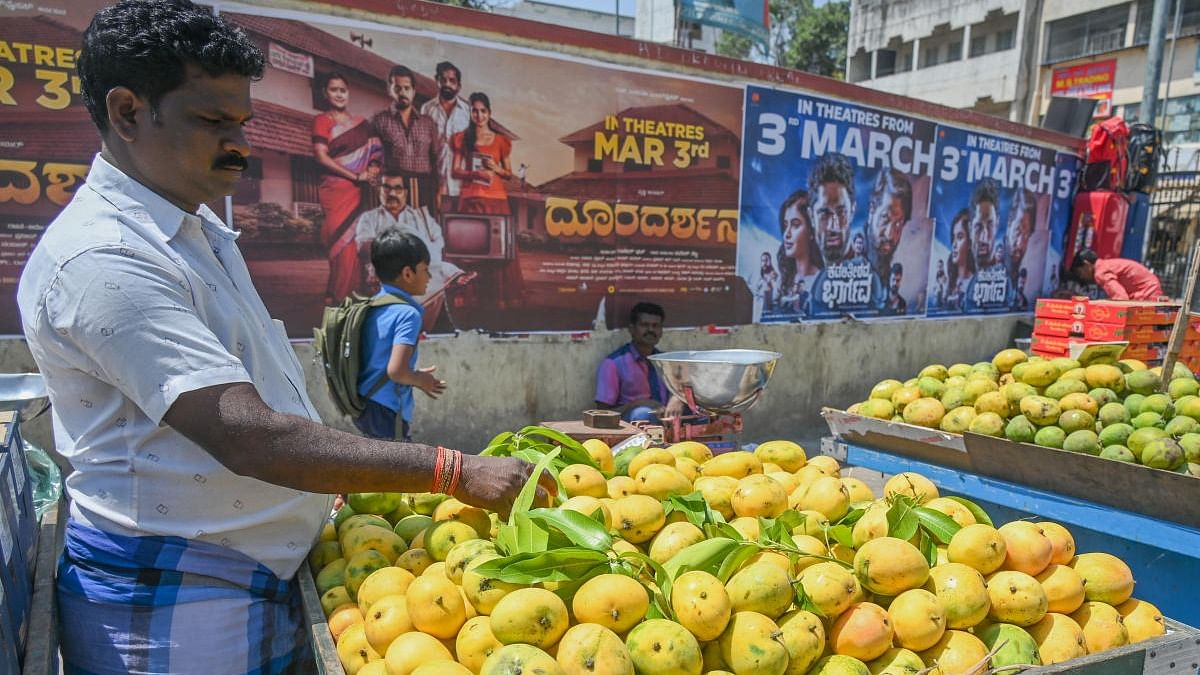
The vagaries of the weather will continue to impact mango yield in the state for the third consecutive year. Untimely rain in December and excess heat in February have adversely impacted flowering and fruit setting.
Farmers were expecting a good yield this year after low yields in the last two years. However, senior officials in the Horticulture Department and the Karnataka State Mango Development and Marketing Corporation Limited (KSMDMCL) said that the state might get only 70 per cent of mango yield this season.
Mangoes are grown in over 1.60 lakh hectares in Karnataka. In a normal year, 14 lakh tonnes of yield is expected. But due to the withering of flowers between December and February, around 10 lakh tonnes of mango harvest is expected.
Also Read | PM Modi releases over Rs 16,000 crore to farmer beneficiaries in latest instalment under PM-KISAN
Last year, farmers had cultivated mangoes on 1.30 lakh hectares of land but could harvest only 7 to 8 lakh tonnes. The average yield of mangoes in the state in the last five years is 12 lakh tonnes.
Officials also fear the shorter span of winter might impact the quality of the fruits.
Additional Director of Horticulture (Fruits & Floriculture) K B Dundi said that by now, fruits from Ramanagara should have hit the market. However, due to untimely rain and blight disease, the flowers withered. “The second and third phases of flowering have started and hopefully, by May, we should have the fruits,” he said.
Ramanagara is the second-highest mango-cultivating district after Kolar. Kolar accounts for 50 per cent of mango cultivation in the state.
A senior KSMDMCL official said, “We are expecting a slightly higher yield this year as there could be a prolonged mango season with fruits being available till June and July.”
The officer said around 35 per cent of the state’s production goes into inter-state supply; 35 per cent is sold in the domestic market. Nearly 20 per cent of the production (mostly totapuri mango) is used by the pulp industry in the state.
“Less than one per cent of the total yield is exported to other countries due to the fruit’s short shelf life and lack of cargo facilities,” said the officer.
As a result of yield fluctuation and low profits, many farmers have shifted to cashew and other horticulture crops.
“Two years ago, due to prolonged monsoon, the yield was low. This year, due to excess heat, the flowers are falling. So I have removed mango plants from two of the five acres of land,” said Mallesh Hipparagi, a farmer from Kalagatagi taluk in Dharwad. He grows the alphonso variety.
Alphonso mango, identified as the district product of Dharwad under the Union government’s ‘One district-One Product’ scheme, is losing its ground in the district.
Alphonso, which was cultivated in more than 25,000 hectares in 2017, is now restricted to only 7,500 hectares.